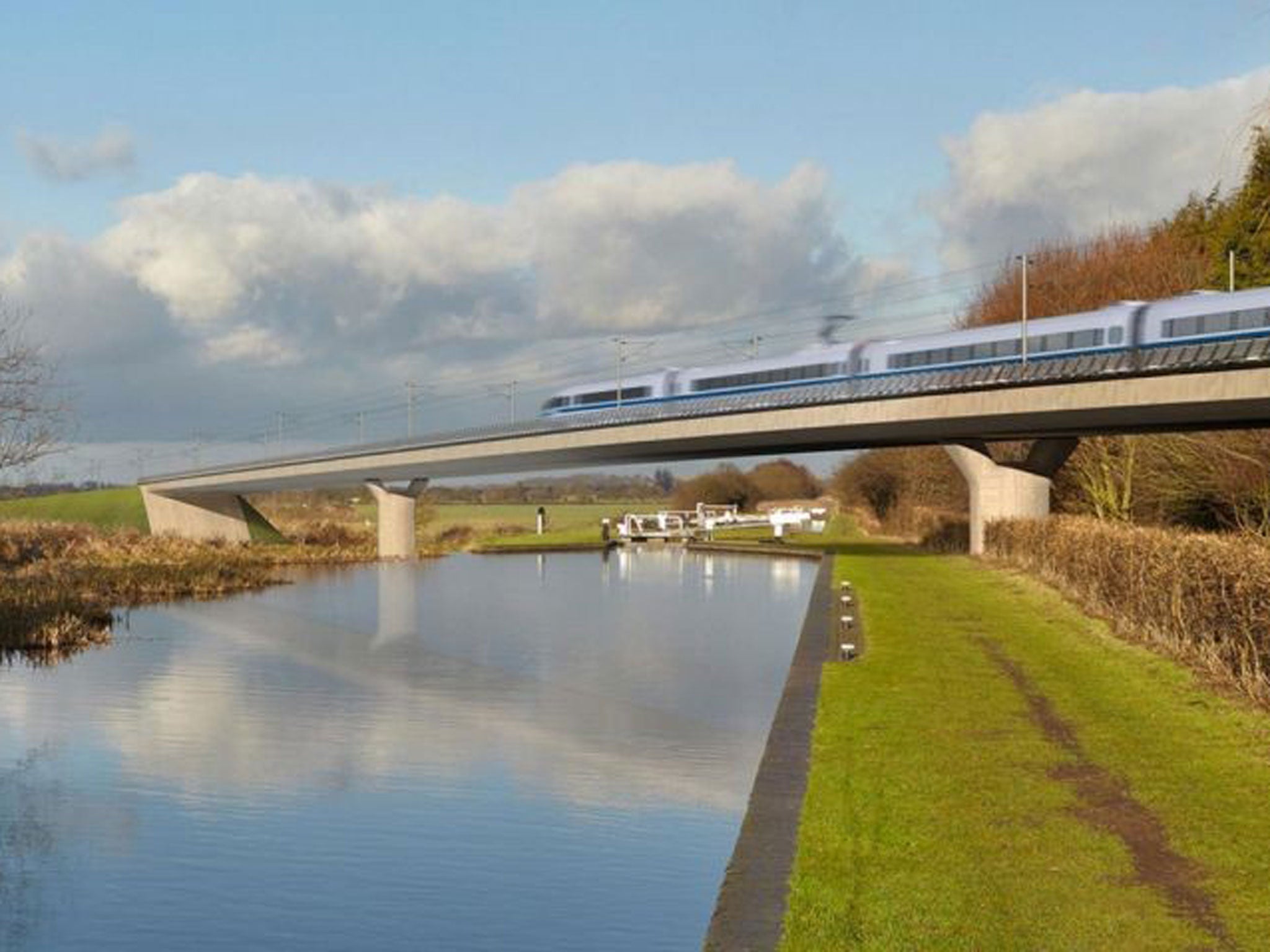HS2 shows that investment is not such a dirty word after all. But how did the Coalition get here?
When the Coalition first came to power, nothing much happened on high-speed rail. So this sudden burst of energy is welcome, even if the impact remains years away


At last it appears to be full steam ahead for high -speed rail. The journey so far has been unreliable and at one point seemed to be heading for a dead end. There is still a very long way to go. The scheme is years away from implementation and will make little immediate difference to economic growth. The announcement that the link will extend to Leeds coincided neatly with a cabinet meeting there. In the new Labour era, such a coincidence would have been widely dismissed as “spin”.
The media greatly overplayed “spin” then and I do not criticise the Government for seeking to set the agenda now. Governments have to find a way of conveying what they are doing and might do in the future. The fact that Cameron/Osborne choose to highlight a commitment to high- speed rail is itself significant, given their perhaps inadvertent neglect of the project after the election. The new focus shows how worried they are about the perception of government inactivity as the economy heads towards recession again. Look, they insist, we are not only building a high-speed railway, we are extending its reach beyond Birmingham to Manchester and farther. We are speeding towards growth.
Healthy spin
There are doubts about when the new line will be built to Birmingham, let alone on to Manchester and Leeds. Nonetheless, the ministerial attentiveness is welcome, and the sudden energy in relation to the project marks quite a change. I am told it is No 10’s intention to seize the media agenda at the start of each week with various initiatives aimed at generating growth. This form of “spin” is healthy. On the whole, initiatives do have to be followed up, even if the rail announcement will leave us waiting for a few more years before the trains arrive.
There is a small mystery about the Coalition’s failure to invest in capital spending from the very beginning. In his statement on the comprehensive spending review in October 2010, George Osborne made one very important diversion from his otherwise misjudged austerity package. The Chancellor noted that, in the recession of the early 1990s, the Government had cut capital spending and this had been a mistake. He declared that, in contrast, he recognised the benefits of such investment and would not commit the same error. But the subsequent detailed figures from that review showed substantial cuts in capital spending were going ahead.
There has been no adequate explanation for the gap between publicly declared intent and the cuts. Some ministers say they inherited Alistair Darling’s planned reductions as if they had no choice but to accept them. Nick Clegg admits publicly now what he has been saying in private for some time, that the Government should not have cut capital spending in the way it did. The excitement in the Treasury at having a Chancellor and a Cabinet sharing its zeal for cuts, allied to the speed of the spending review in the first few months of the Coalition, meant that capital spending cuts got through as part of the wider crusade. The acknowledgement, within Cabinet and the Lib Dems, of the benefits of such investment did not count.
This early inactivity also applied to high-speed rail. Labour’s outgoing Transport Secretary, Andrew Adonis, left the incoming government with every detail in place for immediate implementation of the project. While still in office, Adonis had astutely secured all-party support for the scheme in order to ensure it survived a possible change of government. Having experienced high-speed rail on a trip to Japan while in opposition, Osborne in particular was a strong supporter. In another clever act of “spin” in opposition, Cameron announced that, instead of spending cash on a third runway at Heathrow, a Tory government would invest the money in high-speed rail.
Seen to be acting
But when the Coalition came to power, nothing happened. Instead, one of its many Transport Secretaries gave the go-ahead for a judicial review in the constituency of then cabinet minister Cheryl Gillan, holding out the prospect of many other such inquiries. Cameron and Osborne showed little interest early on, perhaps because they had too much else to think about. Adonis despaired and assumed that the project was being killed off out of indifference, fear of local protests, or as part of a wider ideological attachment to not spending public money. Now ministerial enthusiasm is so intense that we have plans for high-speed rail to go well beyond Birmingham, the first staging post in Adonis’s plan.
The leap from apparent indifference to enthusiasm is not entirely contradictory. There is still a reluctance to invest enough in more immediate projects. The long grass is always the most comfortable political terrain for a government, and high-speed rail will not demand much money for now. The Government can work out how to pay for it when the time comes. But the renewed focus shows at least that the Coalition feels it has to be seen to be acting. Being seen to be acting on a distant project is only one stage removed from the real thing.
For the “Austerity Coalition”, capital investment is almost becoming an acceptable form of spending, as it was meant to have been in the first place.

Join our commenting forum
Join thought-provoking conversations, follow other Independent readers and see their replies